Polar Vantage V3 review
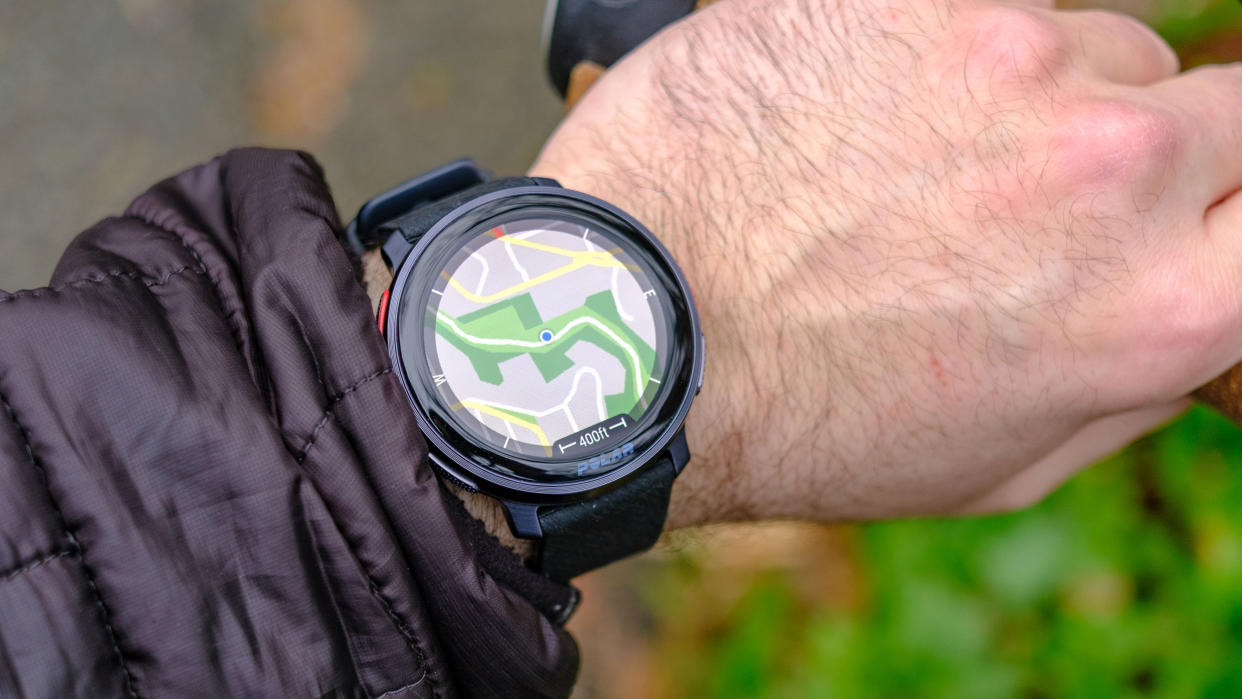
Specifications
Price: $599.95
Battery life: 12 days (watch mode) / 61 hours (training mode)
Display: AMOLED
Screen size: 1.39 inches
Built-in GPS: Yes (dual-band)
Heart rate monitor: Yes
SpO2 monitor: Yes
ECG monitor: Yes
Skin temp sensor: Yes
Mobile payment: No
Water resistance: 50 meters
On-board music storage: No
Bluetooth music control: Yes
Weight: 1/27 ounces (device only)
Size: 1.85 x 2 x 0.57 inches (device only)
Announced in October 2023, the Vantage V3 is Finland-based Polar's latest flagship wearable, replacing the 3+ year-old Polar V2. Upgrades include a new larger, brighter and crisper AMOLED touchscreen, dual-band GPS, support for offline maps and the addition of SpO2, skin temperature and ECG sensors.
To put it bluntly, the Polar V3 is jam-packed with the latest wellness and fitness-tracking technology, making it a solid option for hardcore athletes, especially those looking to gain deep insight into their training and recovery.
Battery life, build quality and usability are all excellent. However, compared to other watches at this price point, "smart" features are few and far between, even if the holistic ones are class-leading.
How does the Polar Vantage V3 stack up against some of the other best fitness trackers and best running watches on the market today, including the Garmin Forerunner 965 and popular devices from Fitbit? And is it worth the hefty price tag?
To find out, I put the Polar Vantage V3 to the test over several months in a wide range of settings, from city cycling to volcanic glacial snowboarding to sleeping soundly in bed. Read our full Polar Vantage V3 review to learn more.
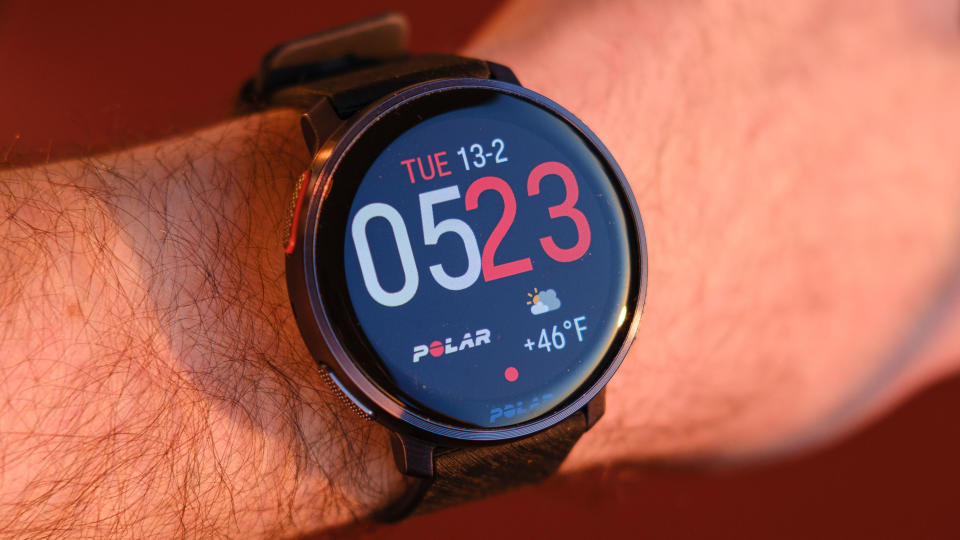
Polar Vantage V3 review: 7 things to know
It’s $100 pricier than the V2 at launch
The V3 sports a larger, brighter touchscreen than its predecessor
GPS is now dual-band and maps can be saved for offline use
Besides on-wrist phone notifications and music control, there are no "smart" features
With five physical buttons and a responsive touchscreen, there are numerous ways to interact with the V3
150+ sports profiles are supported, from badminton to wakeboarding
Rest and recovery tools are extensive
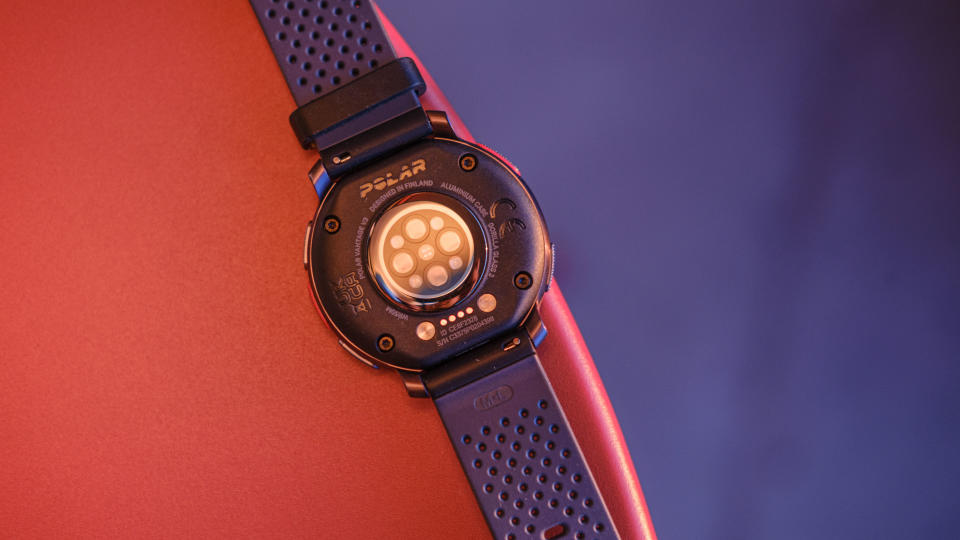
Polar Vantage V3: Price and availability
The Polar Vantage V3 was announced in October 2023 and is available now for $599.95. For an extra $50, you can bundle the Polar H10 strap-based heart monitor with your order, which is normally $89.95.
The V3 also comes with a 60-day free trial of Strava which includes access to the advanced, paid subscription features. You also get access to one free region via the route planning app, Komoot.
Polar Vantage V3 review: Design and display
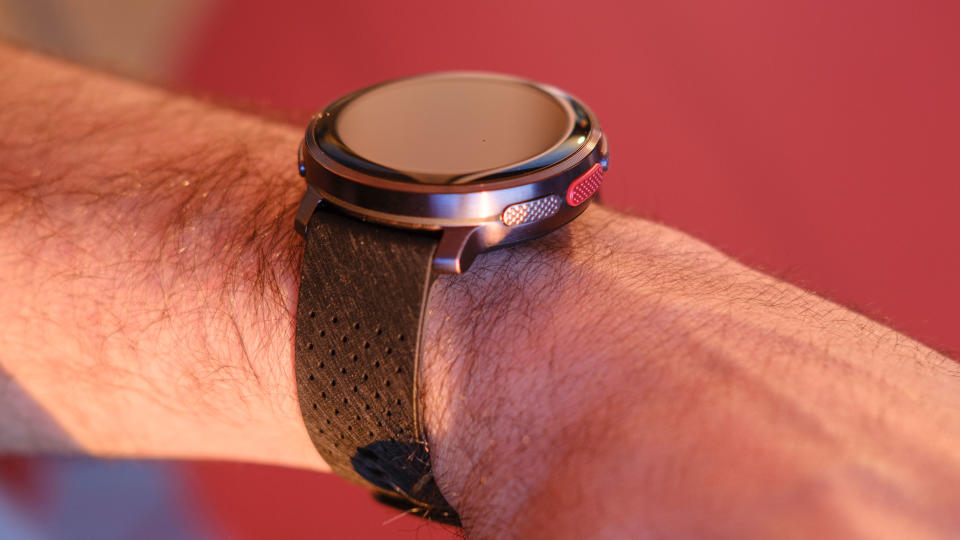
If I had to describe the Polar V3's design in one word, "understated" would be my choice. Aside from a few red accents, this flagship smartwatch definitely doesn't stand out from the crowd or jump off the wrist. But then again, those using the V3 to its maximum potential have no time for compliments.
The 47mm case is 1.5mm thicker than its predecessor and wears large on my fairly average-sized wrist (6.5 inches in diameter). Unlike the Garmin Fenix 7, the Polar V3 comes in only one size, which is a shame. It's high time smartwatch brands start offering multiple models for different kinds of users rather than taking a one-gigantic-size-fits-all approach.
The case and bezel are constructed of aluminum, and the display is a scratch-and-shatter-resistance Gorilla Glass affair. The rear of the watch, surrounding the sensor configurations, is made of plastic.
Lightweight and with a premium-feeling build quality, the highlight of the V3's design is easily the upgraded AMOLED screen with a 454 x 454-pixel display. Unlike its predecessor, this display is easy to read in even the brightest of daylight, with beautiful color saturation and crisp details.
My only major complaint, design-wise, is that the waterproof rating has been knocked down from a respectable 100 meters on the V2 to a rather-meh 50 meters on the V3.
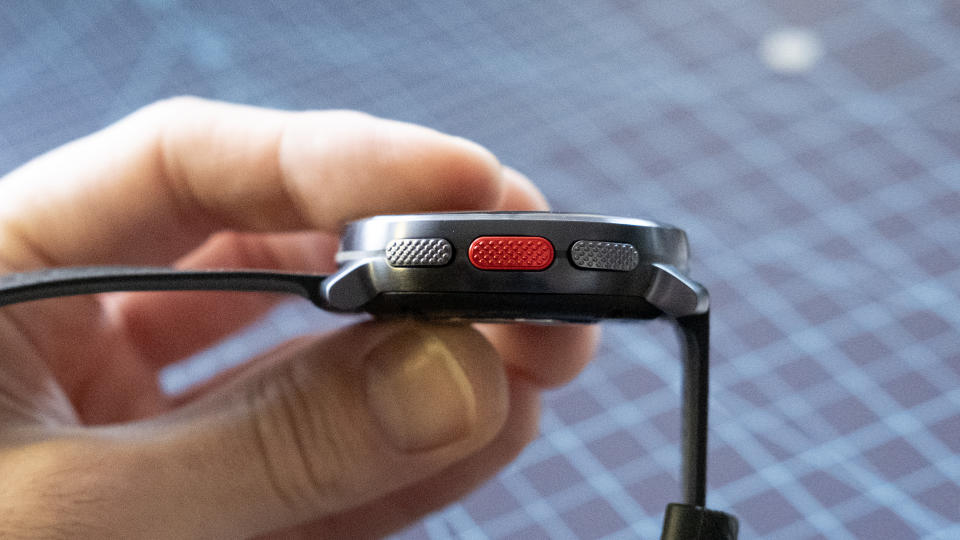
Love physical buttons? The V3 sports plenty of them. Five in total, similar to Garmin's offerings. In addition to all the buttons, the V3's touchscreen provides an additional means of navigation. However, during sweaty workouts, I definitely appreciate the more tactile response of the former.
The left side of the bezel has two buttons, and the right side has three. When not using the always-on display, pressing any of the five wakes the watch up. Beyond that, each button's function varies depending on the mode you're in.
While training in any of the 150+ activity modes, a press of the lower left button pauses your session, and holding it for three seconds ends it. Similarly, while training, the top and bottom buttons on the right side of the bezel allow you to toggle the various views, displaying everything from a GPS-connected map to real-time metrics and more.
The top left button also functions as an ECG finger sensor when running said test. Users are asked to place their dominant index finger on the textured button for about a minute while the watch checks in on their heart rhythm.
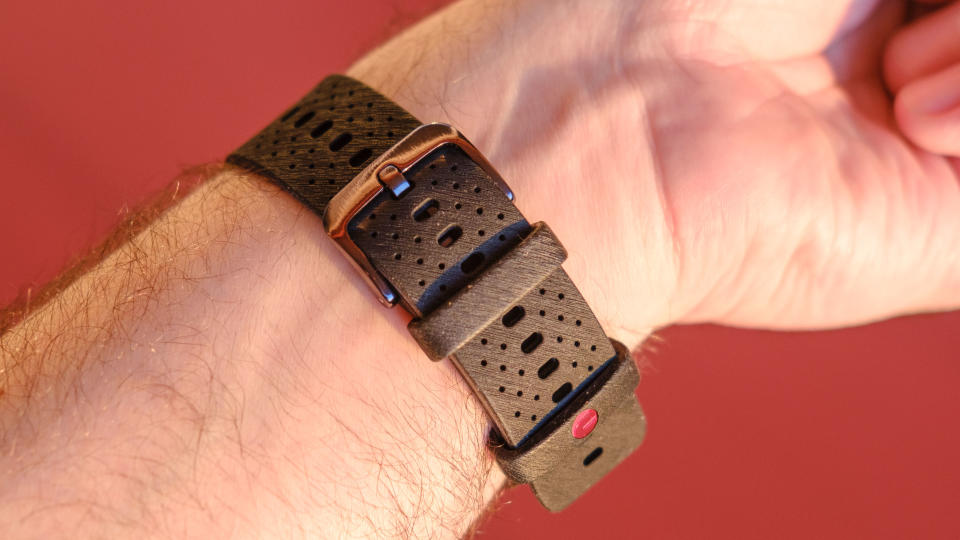
The V3 ships with a high-quality silicone strap that looks great but is also practical for sweat-inducing activities. The outward-facing side has a brush-leather-like look, while the bottom has a soft, comfy rubber feel to it. Small perforations on the band give it solid breathability.
I'm firmly against proprietary methods for attaching smartwatch straps. And the folks at Polar seem to be on the same page: The V3 uses standard 22mm spring release bars and plays nice with the literal ten zillion 22mm watch bands on the market right now. Better yet, the spring bars included are quick-release, so you don't even need a tool to swap one strap for another.
The included strap uses a standard pin and buckle enclosure for securing it to one's wrist, with plenty of options for adjustment. Two strap loops keep everything secure, including one with a plastic notch that pops into a corresponding buckle hole for added security.
Polar Vantage V3 review: Health monitoring features
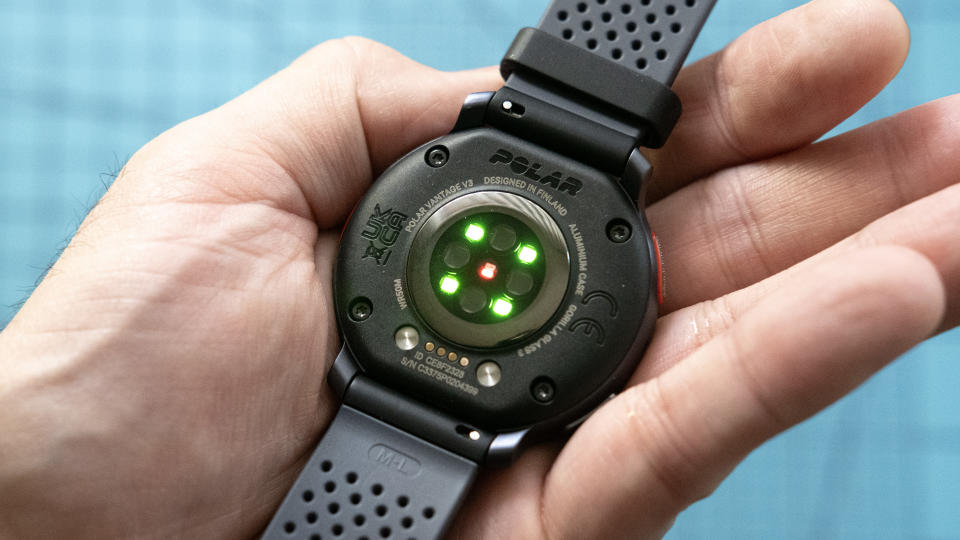
Health and activity monitoring tech on the V3 is abundant. Users get dual-band GPS for accurate location tracking, body temperature tracking for insights into sleep and stress levels, blood oxygen saturation monitoring for potential signs of serious illness or conditions, an ECG sensor to keep on your heart's electric signals, an optical heart rate sensor to monitor pulse, a barometer for measuring altitude gains and an accelerometer for movement tracking.
Some of these sensors work automatically while recording workouts. Others do their thing continuously behind the scenes, like pulse monitoring (this can be toggled on and off). Still others, like measuring blood saturation or ECGs, require a user to navigate to the watch's "testing category" to self-administer a reading.
Polar Vantage V3 review: Fitness tracking features
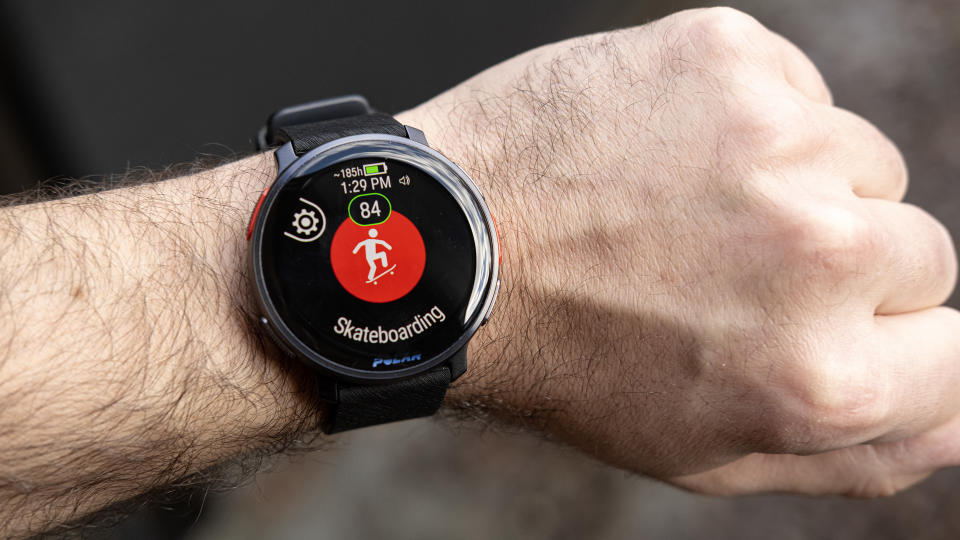
The Polar Vantage V3 tracks more activities than most fitness wearables out there. You get more than triple the number of profiles offered on modern Fitbit devices, including the popular Fitbit Charge 6, the best fitness tracker for most folks.
With 150+ sports profiles and growing, Polar has done a seriously impressive job catering to a wide range of users. Love badminton? There's a mode for that. Is freeform jazz more your vibe? The V3 has that covered, too.
Previous complaints aside, the V3's large display is truly a joy to view while working out, especially when on the move.
Users can customize, to some extent, what data is shown independently for each activity they wish to track. And, as mentioned, the upper and lower left buttons cycle through the various in-training info screens with ease.
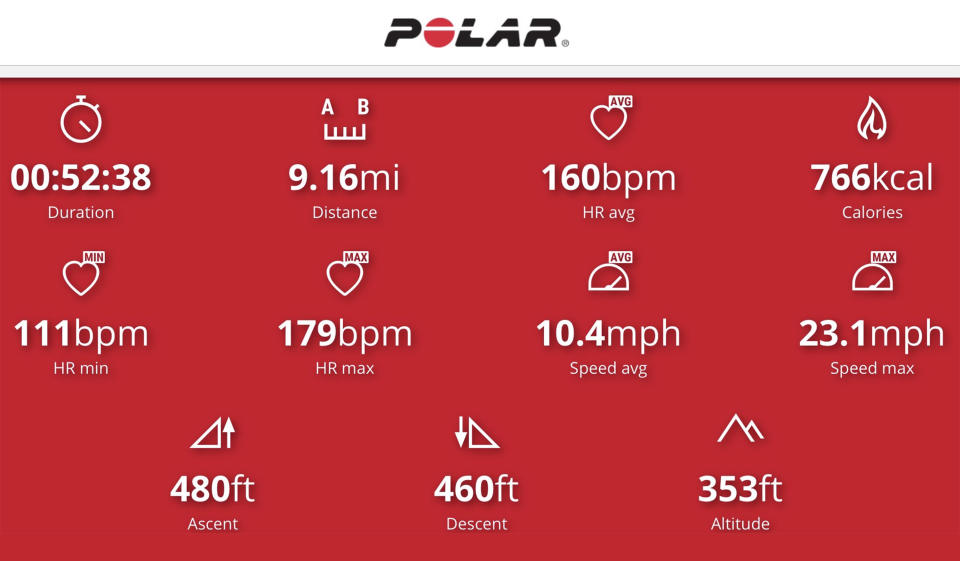
While snowboarding, I appreciated the ability to spot my distance covered, speed and riding duration at a glance while cutting turns on at 25+ mph. And the post-shred session maps of all my routes were a delightful bonus.
For activities with a lot of elevation gain or loss, Polar's Hill Splitter technology is especially handy. It's smart enough to discern between time spent riding a chair lift versus time spent cruising a relatively flat green, for example.
The bevy of physical buttons also makes navigating the device easy when sweaty or wearing light gloves. Full-on snowboard gloves had to be removed, though.
Finally, I noticed zero software lag while testing the Polar V3 during everything from remote mountain hikes to long bike rides to walks around Seattle with my pup.
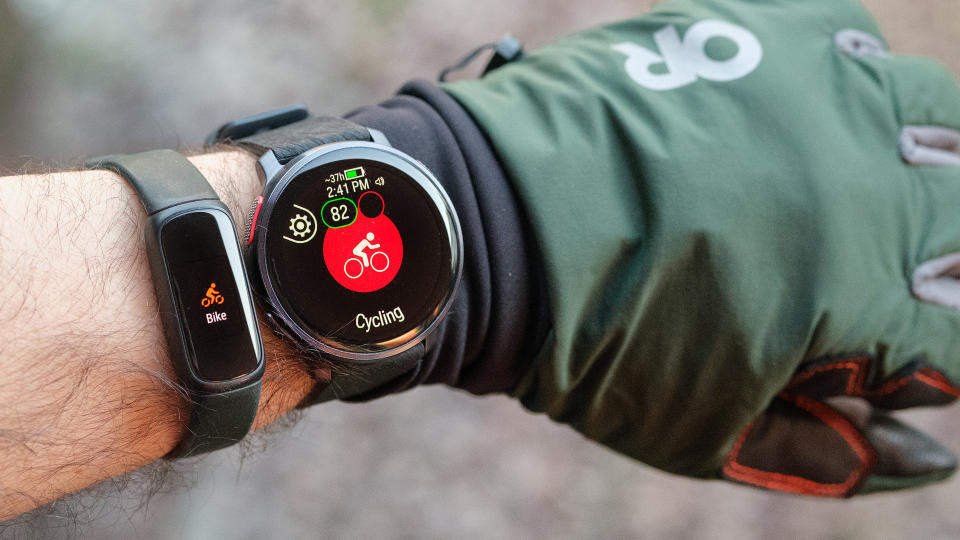
For swimmers, the V3 also boasts the ability to automatically detect one's stroke, which is pretty cool, though I wonder if it has a category for doggy paddle.
When a workout is completed, users are presented with an easy-to-digest breakdown of their stats within the Polar Flow app. This includes basics like duration, distance, average heart rate, elevation gain and more. Of course, if you're measuring a weight-lifting workout, your stats will look a little different than tracking a run.
The Polar app also allows you to set and monitor workout goals, with three levels of activity plans to choose from, depending on how hardcore you are. I stuck to level 1.
Overall, the V3 seems to churn out accurate health metrics. I tested its accuracy while biking and hiking against other popular trackers, including the Fitbit Inspire 3 and Amazfit Bip 5. While it broke even in terms of wins and losses, the V3 performed admirably in both head-to-heads.
Polar Vantage V3 review: Dual-band GPS
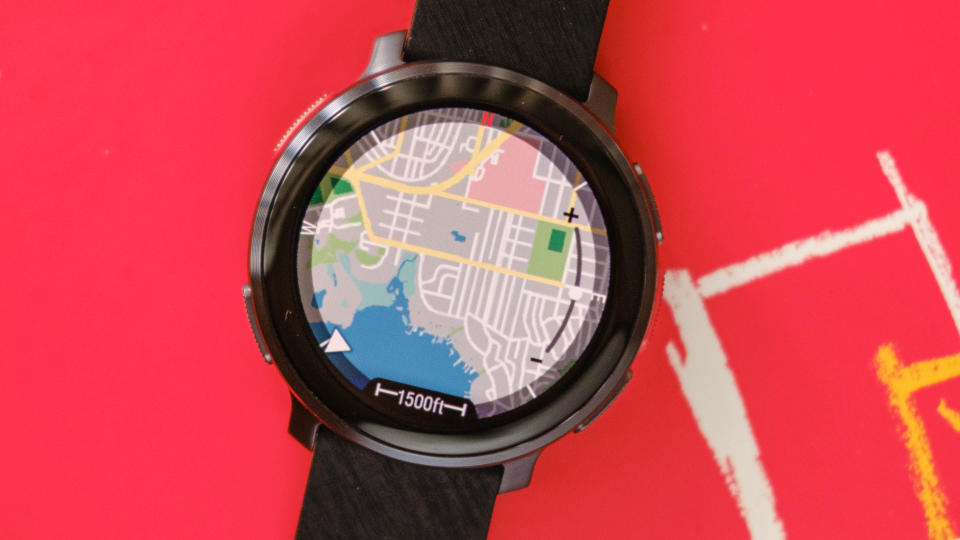
Rock-solid GPS connectivity is a huge selling point of this watch, and from my testing both in urban and remote areas of the U.S. Pacific Northwest, it lives up to the hype.
Polar equipped the V3 with both L1 and L5 GPS frequency bands, and in addition to GPS, it can also receive signals from Galileo, Glonass, and BeiDou. This combo helps it find a signal even in densely forested areas, cities with tall buildings or in terrible weather. In addition to the ability to download offline maps, users can also make use of turn-by-turn audio guidance via Komoot.
Polar Vantage V3 review: Sleep and recovery tracking
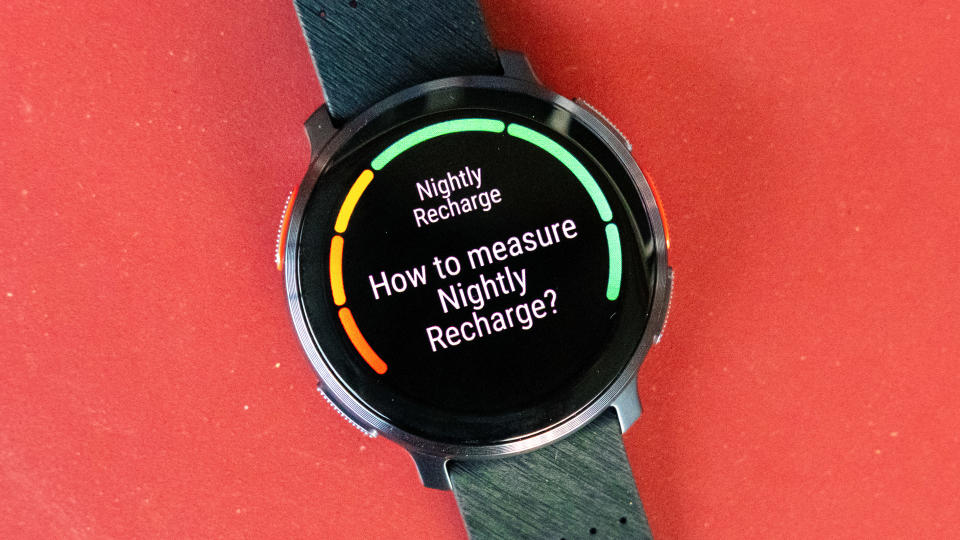
Sleep and recovery insights are also a huge part of the Polar V3's appeal. Depending on how deep you want to dive, the device can help you decide everything from the best times to go to bed/wake to what type of workouts best suit you on a given day based on overall fitness goals.
Speaking of training, the V3 does an excellent job at keeping tabs on how hardcore your workouts are. If the device senses you're pushing yourself a bit too hard based on previous goals and fitness routines, for example, it may send you a reminder not to overextend your training load.
Sleep-tracking tools are also extensive though they do require a user to wear the device for numerous consecutive nights in a row before seeing useful insights. Given the large size of the device, rocking it at night will likely take some getting used to for most users.
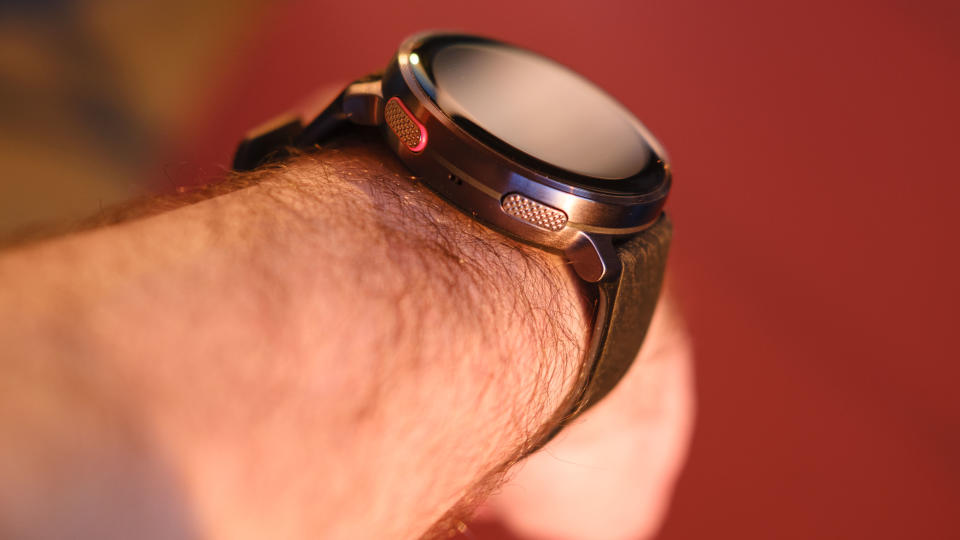
In addition to inadvertently bonking my partner in the head several times throughout testing the V3, I also experienced several nights where, frustratingly, no data was recorded. In retrospect, this was almost certainly due to me not wearing the V3 tight enough around my wrist before closing my lids.
When the sleep tracking feature does have enough data to spit out insights, they are rather intriguing. The V3 tells you everything from how much time you spend in various sleep cycles to changes in your core body temperature to periods of restlessness.
In addition to sleep and recovery insights, the V3 also provides mindfulness tools in the form of breathing exercises. These are useful, though no better than what you might find in a free mindfulness app. Finally, at the end of the week, users are provided with a health and progress report analyzing all of the above, including workouts, rest and recovery.
Polar Vantage V3 review: Battery life
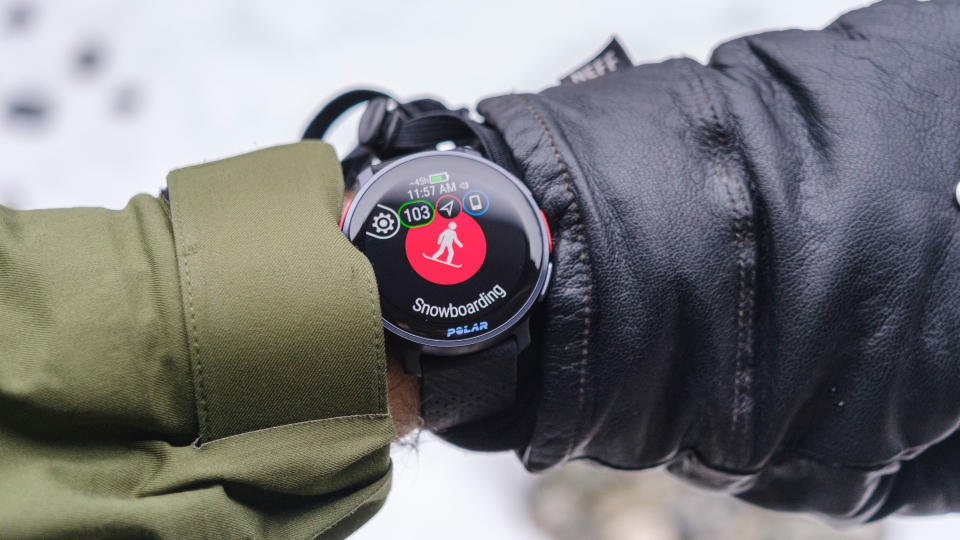
Battery life on the V3 is impressive. According to Polar, the 488 mAh capacity battery should have enough juice for 12 days of use in standard watch mode and 61 hours in training mode while running the GPS and body sensors.
In my testing, battery life easily lived up to the quoted figures. I was able to capture stats during a six-hour snowboard outing in sub-freezing temperatures — GPS and all running — without putting a discernible dent in the V3's battery. At most, it dropped 5%.
However, the one feature that will absolutely nuke battery life is running the always-on display. Doing so will knock total power down to three or four days of battery life, max.
The Polar V3 charges via a proprietary cable — grumble, grumble — that attaches magnetically to the back of the device and plugs into a SUB-C socket.
Polar Vantage V3 review: Smartwatch features
Up until this point, the Polar V3 has pretty much everything going for it, but smartwatch features are where it falls noticeably short of the competition. Users can control music from a Bluetooth-connected device, i.e., your smartphone. You can also receive smartphone notifications on your wrist and not a lot more.
Tap-to-pay — such as can be found on Garmin's devices — would be especially useful on this fitness-focused watch for folks wishing to leave their smartphone at home.
Polar Vantage V3 review: Verdict
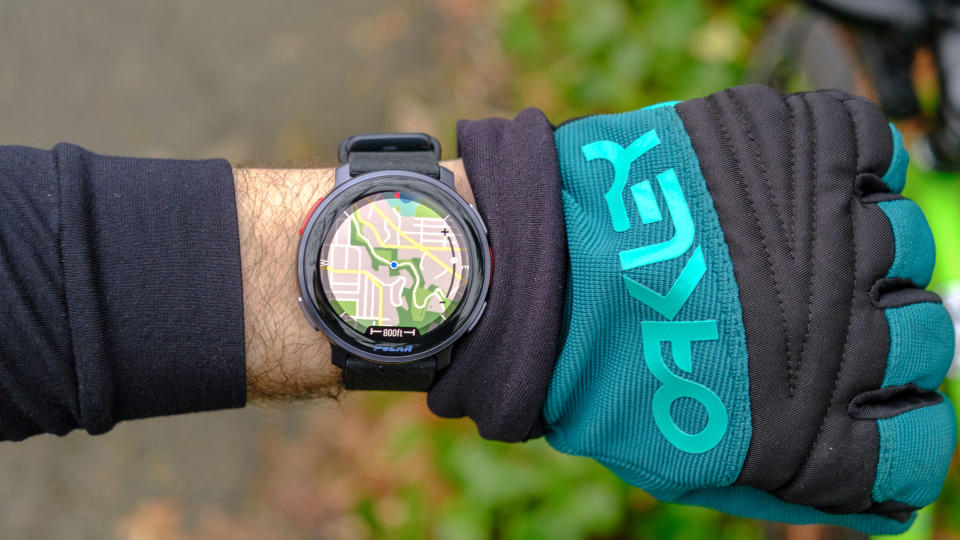
The Polar Vantage V3 is one of the most advanced workout trackers available in 2024. Rather than zoning in on fitness alone, this Polar device combines insights from activities, rest, recovery and mindfulness to provide users with a holistic breakdown of their overall well-being, along with suggestions for improvement.
The screen is bright, the battery life is great, the usability is outstanding, and the technology is both accurate and user-friendly. However, at $600, the Polar V3's epic suite of wellness functionality is likely overkill for a lot of folks.
On the same page, the device's lack of smart features is also going to be a turn-off to casual users. But for hardcore athletes or those with big 2024 fitness goals, the Polar Vantage V3 is up there with the Garmin Forerunner 965 and Garmin fenix 7 as one of the best fitness-focused wearables for multisport athletes.
If you like the design of the Polar V3, especially the gorgeous AMOLED screen, but dislike the hefty price, consider the Fitbit Sense 2. It's less than half the price, provides plenty of useful fitness and wellness tracking capabilities, and even supports a small selection of "smart" features. The Garmin Forerunner 265 is another solid AMOLED-equipped alternative, though it's only $150 cheaper.
